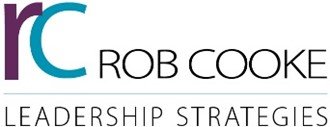
The Benefits of Booting the Annual Performance Review
For years I have watched organizations perform the annual performance review ritual. Most managers complain about the amount of time it takes to complete all of the forms and employees are typically upset with their feedback. Truly, I am unclear of the value of the exercise. Performance review and feedback needs to be on-going process where people are continually aware of performance expectations and how well they are doing. Leaders need to take responsibility for ensuring expectations are clear and for enabling people to be successful.
Adobe, a software company best known for Photoshop and InDesign, recently abolished the yearly performance review. Since then they have been seeing the benefits of trading an outdated practice for a system that empowers both managers and staff. The yearly performance assessment was replaced by informal “check-ins” that managers were invited at have at their own discretion. These more frequent conversations allowed managers and staff to discuss performance and other issues. The organization provided training for the managers in giving and receiving feedback, and the forms and formal reporting structure of the past was tossed. Since this change Adobe has seen a number of benefits:
Better Teams
The statistics show that after the changes more people were fired, and fewer people quit. This means that because of the more frequent discussions between managers and staff Adobe was able to quickly let go of people who weren’t a good fit, as opposed to having to wait till next January. The fact that fewer people were quitting shows they got real benefits from abolishing the yearly review, and that the improved communication between them and their managers was giving them reason to continue working with Adobe.
Mentorship
Frequent discussions between managers and staff resulted in opportunities to talk about skills, areas for improvement, and plans for the future. Essentially the new “check-in” system provided the perfect environment for mentorship. Mentorship in the workplace is valuable in a number of ways. Mentorship shows staff there is someone within the organization that cares about their professional success. Mentors have a great deal of value to share, from resources and professional organizations, to their own network of contacts, mentors help staff stay in jobs.
Ownership
With no yearly performance assessment managers and staff saw it was up to them to take charge of performance standards. Having the power to choose when to discuss performance and what changes to enact instilled both managers and staff with a sense of ownership. Ownership in the workplace is important because it is a big part of what drives a willingness to go above and beyond what is expected to help the company succeed. A sense of ownership provides fuel for staff to think creatively and apply themselves.
Accountability
Under the old system an employee’s wages were determined through the yearly performance review, human resources, and some input from their manager. Under the new system their manager was solely in change of determining an employee’s wage. This increased accountability because managers could be asked to justify the wages of an employee. The justification for an employee’s wages would then involve references to the informal performance reviews citing where the employee excelled. This is beneficial for Adobe because it requires managers to be more involved in their employees and their performance.
Final Thoughts
Good managers don’t need or follow a strict formal performance review process in order to address important performance issues and discuss these with staff. Formal review processes do not improve managing or motivational skills, … they are usually a weak band-aid. Worse yet, … good managers are wasting their time filling out review forms to document what was already clear to all parties. Great managers observe, LISTEN, coach, and give other real time feedback every day. Great managers stay on the same page with their staff regarding what’s working or not, as well as what is acceptable and what would be great to enhance, and what lies ahead. Managers need to be coached to manage performance and behaviour ACTIVELY, DAILY, CONTINUALLY. A daily, active, engaged leader is far more effective than someone who hides behind a perfunctory administrative process.
About the author: Rob Cooke utilizes his extensive consulting, executive and entrepreneur experience to help leaders and their teams address emerging challenges, seize opportunities and execute approaches to enhancing their personal, leadership and business performance.
June 17, 2017 | Leadership Development
